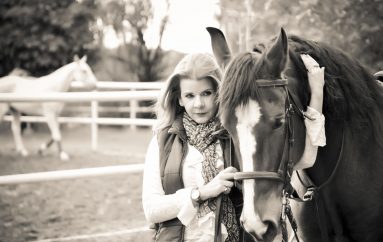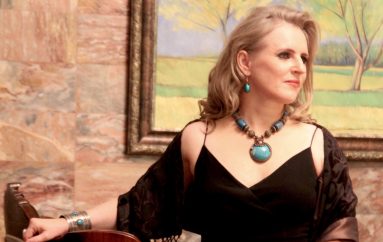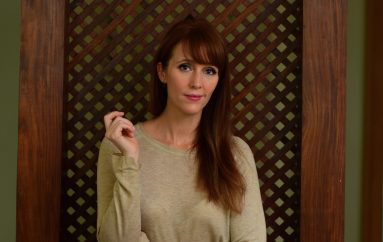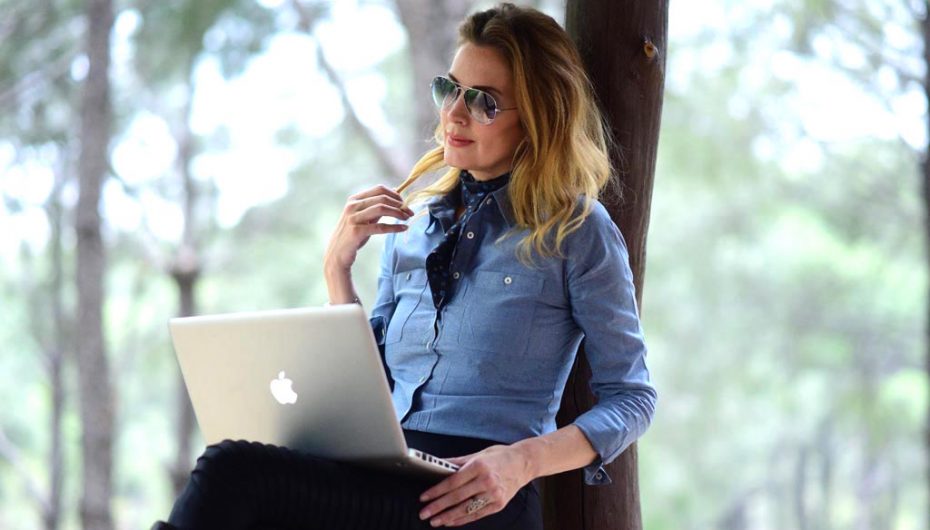
Capturing Pakistan through Cynthia’s lens
Being a world traveler, avid social media enthusiast and filmmaker, Cynthia Dawn Ritchie talks about how she has been reshaping perceptions between the peoples of Pakistan and her native country – America.
Hailing from Louisiana with a Masters degree from Louisiana State University and additional graduate training at University of Houston School of Law, Pepperdine University and George Washington University in the faculties of mass communications, criminal justice, conflict resolution, clinical & behavioral psychology and strategic public relations, Cynthia is a unique cocktail of expertise, insight and sheer talent.
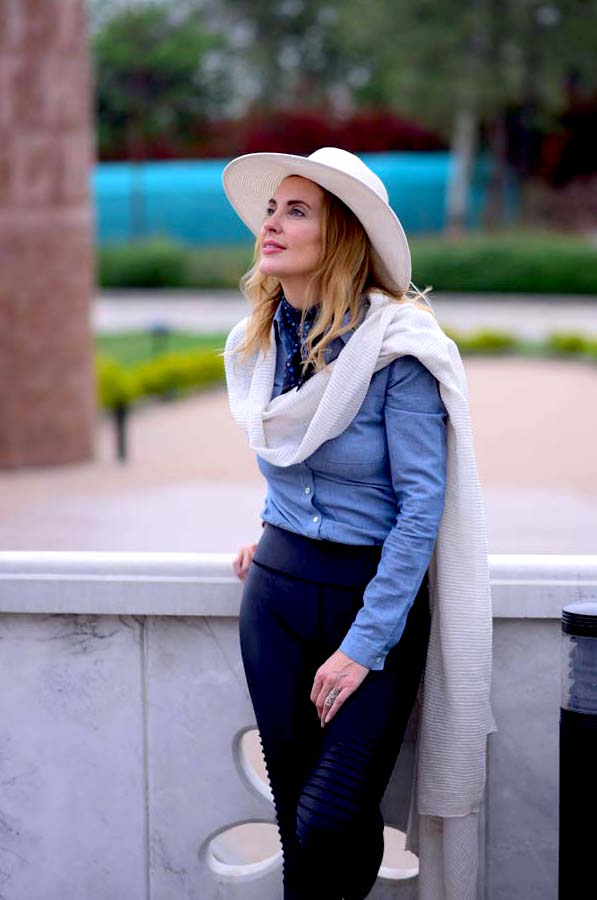
“I came to Pakistan in the wake of the 2010 floods to do a type of informal needs assessment, so that I could bring back my reporting to the Pakistani-Americans who sponsored my trips to Pakistan, so that they would know which organizations to send their money to,” says Cynthia. “The further I traveled, the more I realized how much we have in common such as healthcare and education crises, gender parity issues, democractic challenges, etc. All the things that we hear in Pakistan are still equally troublesome in America too till this day.”
“The media has been, I would say, exceptionally inaccurate across multiple domains as it describes Pakistan,” adds Cynthia. “This is not to say there are no challenges here; there are countless challenges here in Pakistan as there are in America, many of which I’ve experienced for myself. One of the things that I tell University students in America as well is in Pakistan is that for the past two decades, Pakistan has been dealing with a chronic pervasive negative media campaign, both domestically and internationally. And now, America is facing something similar — you can’t turn on a TV channel or a radio station without hearing something negative. So, the youth in America have this in common with the youth of Pakistan.”
When I’m invited to speak at American Universities, I show the faculty and students two or three of my pieces of film work – short films of three to five minutes each. I basically shock them with a contra-positive of what their expectations are; I want to challenge their preconceived notions of people, places and faiths of which they otherwise would likely never have experienced for themselves. They expect to see angry bearded men running around with Kalashnikovs and women always in burqas, and undeveloped cities with dirt roads,” says Cynthia.
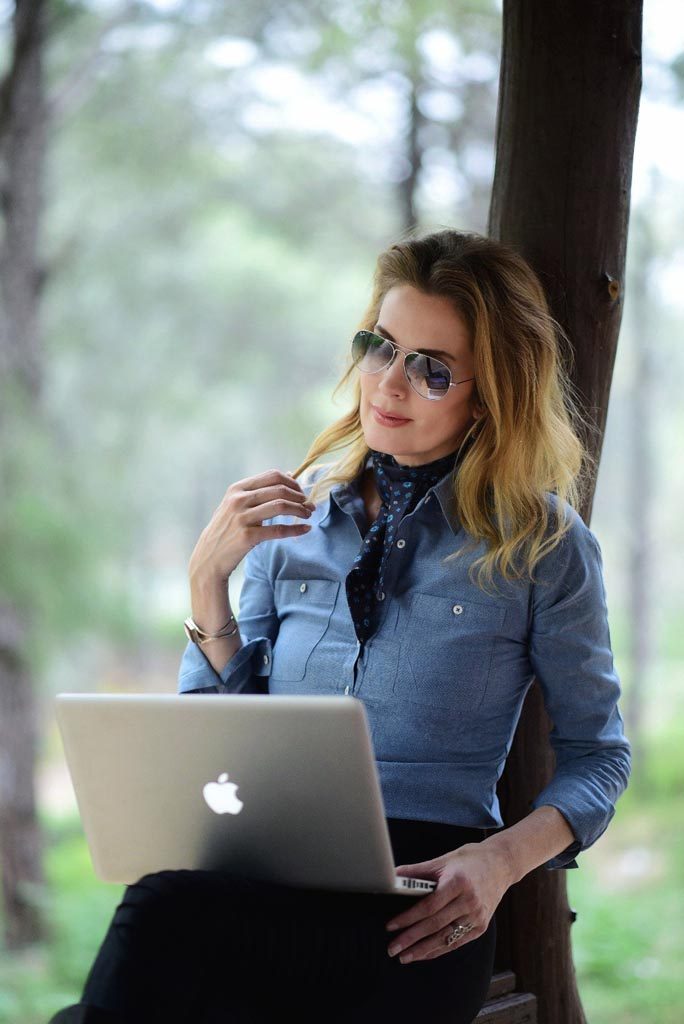
“In my work I acknowledge these things, the negative scenarios can and do occur, yet while the overwhelming majority of the media focus on the negative, I choose to place primary focus on more objective yet optimistic events. I show Pakistani women in ways the Western mind would perceive as exceptionally strong roles, such as female Commandos, police officers and female fighter pilots. These women have been working for years, so why hasn’t the media shown them as much as the so-called subjugated, oppressed women always wearing burqas? This, for me, is beyond the pale. I therefore try to go for the biggest shock value that I possibly can to ensure the West takes notice. So for them to see female Commandos? That is noteworthy! You now have an entire team of female Commandos with me in the middle of it, running around, training with them, rappelling down buildings, and that is fascinating to the international audience. Then you show another side: these women later go home to their families, taking care of their husbands and their children. Then you show men, artists, humanitarians — the opposite side again. We show these men, who are very gentle, giving and loving such as Edhi Saheb.”

So how important a role is social media playing in catalysing these changes in perception?
“Social media for me, is a natural evolution. In fact, social media is probably one of my bigger platforms, in addition to the film work that we are preparing for television,” says Cynthia. “I was teaching social media to the City of Houston before – the administration was like, ‘what is this social media’? So, I have been teaching that since 2007 and of course, it has evolved drastically. For me, I use it as a platform to make inter-connections that otherwise would not have existed.”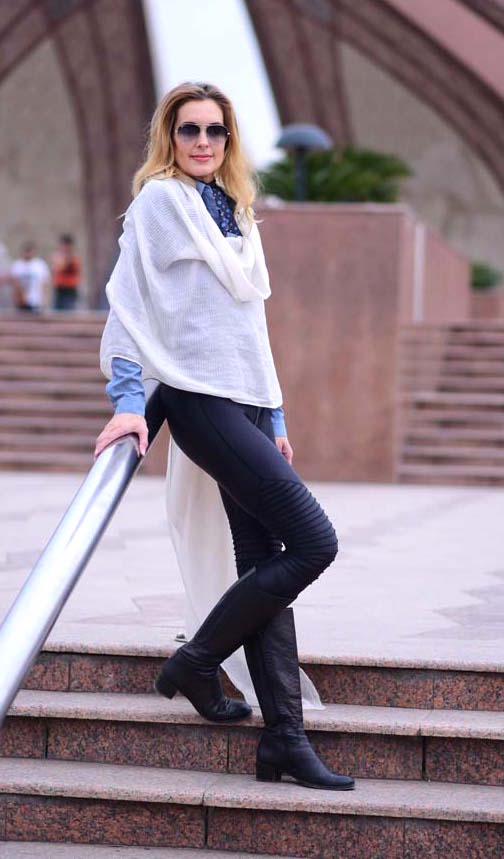
“For instance, ‘Emerging Pakistan’ is a hashtag that I came up with and began using a few years ago over social media,” continues Cynthia. “It has a very strong financial tone to it because one of the things that I’m intrigued by is the contribution of the China-Pakistan Economic Corridor (CPEC). Having traveled Pakistan since 2009, I have personally seen the number of contributions this corridor has made towards improving certain areas in Pakistan and contributing towards regional stability. Pakistan is a re-emerging market, despite what others claim. My experiences over the years have convinced me Pakistan is an economy of vast potential — it just needs to be managed properly; Pakistan has a story to tell but it has to be told objectively. Narrative economics and perception management… these two subjects have a strong correlation. So, for me, it’s Emerging Pakistan. And Emerging Pakistan is a working title for the beginning of what I hope to be, a multi-part series that will itself emerge into a travel program for the International audience to see Pakistan as it really is, and for Pakistanis to remember just how blessed they are as a nation.”
Thank you Cynthia for your continuous efforts in showcasing the real face of Pakistan to the world.
Related articles
Comments
-
 Yahya May 08, 21:04You are doing a great job. Hope to see you visit Jhelum
Yahya May 08, 21:04You are doing a great job. Hope to see you visit Jhelum -
 Gondal May 31, 18:35Thanks alot being a pakistani feeling owsome mad girl
Gondal May 31, 18:35Thanks alot being a pakistani feeling owsome mad girl -
 Gondal May 31, 18:43Allah bless you dear as soon as m watching your eforts for pakistan m madly felling in love with you because i feel i m pakistan nd if you take care of me then its my duty to make love with youu😂
Gondal May 31, 18:43Allah bless you dear as soon as m watching your eforts for pakistan m madly felling in love with you because i feel i m pakistan nd if you take care of me then its my duty to make love with youu😂

 Ambassador Istvan’s pumping energy into bilateral ties
Ambassador Istvan’s pumping energy into bilateral ties
 Virginija leading FATOOR from the front
Virginija leading FATOOR from the front
 Cristina is this year’s Ponds Miracle Woman
Cristina is this year’s Ponds Miracle Woman
 Ambassador Rodolfo retires amidst glowing tributes
Ambassador Rodolfo retires amidst glowing tributes
